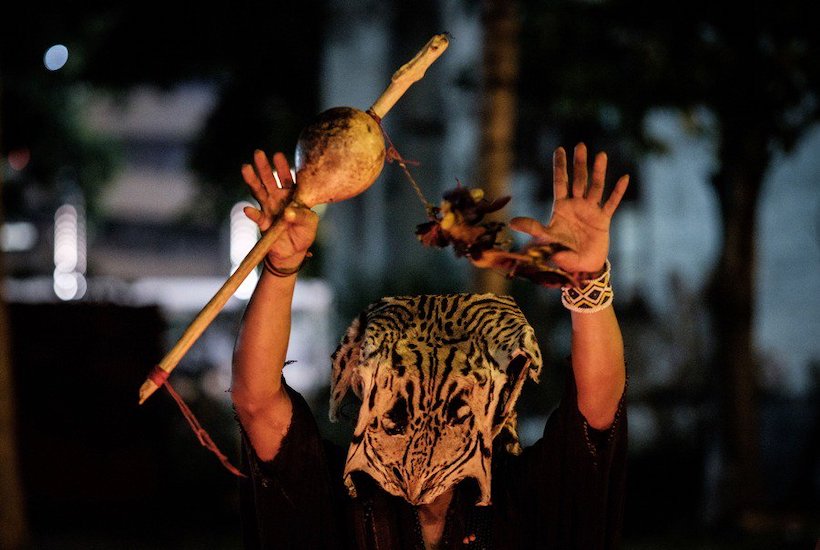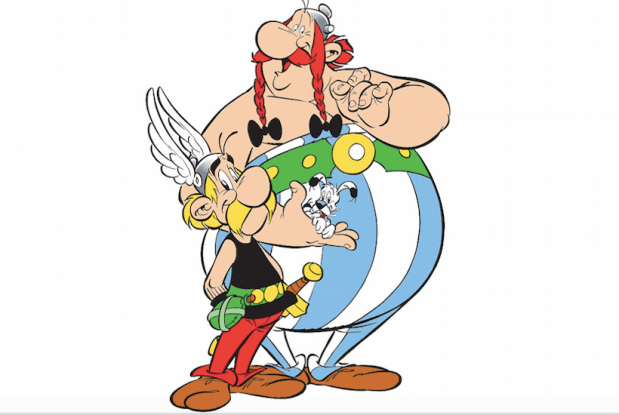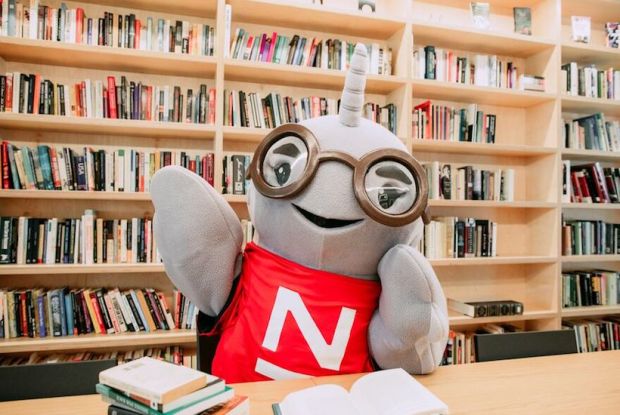Education, or what passes for it in the world of woke, has long been the natural habitat of cultural Marxist idealogues so it’s no surprise to see its lamentable looniness is currently on the upswing. And the barmy army (no, not the cricketing kind) has been more than keeping pace this week.
Risible writing rules
The fact that American University hired a professor to teach other professors how to grade their writing students may seem unremarkable at first but wait until you check out the CV of Marxist extraordinaire, Asao B. Inoue.
Inoue is professor of Interdisciplinary Arts and Sciences, director of university writing and the writing center at the University of Washington Tacoma. His research focuses on ‘antiracist and social justice theory and practices in writing assessments’ and he is the author of (among other woke gems) Antiracist Writing Assessment Ecologies: Teaching and Assessing Writing for a Socially Just Future which, you’ll be equally thrilled and unsurprised to learn, has won a number of academic writing awards.
If you’ve got the stomach for it you can get a sense of Inoue’s philosophy in his address to the annual convention of the Conference on College Composition and Communication here, but I wouldn’t advise it. You’re unlikely to keep your lunch down after you’re exposed to the fulminatory posturing prose of How Do We Language So People Stop Killing Each Other, Or What Do We Do About White Language Supremacy? Don’t you just love the attention-grabbing use of ‘language’ as a verb?
Inoue was brought to American University to encourage a system of ‘labor-based grading contracts’ into their writing programs. For those of you steeped in real-world communication, rather than arcane academic asininities, let me explain. Inoue believes that writing should be assessed on effort, rather than, you know, little thinks like clarity, style, meaning, quality of information and grammar, because assessing on those criteria marginalises the voices of people of colour. There are many ‘Englishes’ and we should value them all equally.
I didn’t do enough research to find out how one is actually supposed to assess writing based on labour alone, but that’s just lack of interest based on my white privilege kicking into gear. I am looking forward, however, to the not too distant future when an effort-based utopia exists across all academic disciplines. Won’t it be fun when poorly designed planes plummet from the sky and shoddy buildings collapse to the ground? At least we’ll know that the socially just geniuses responsible gave it their best shot.
Médecins Sans Riguer
What would happen if we extended other social justice theories to the critical discipline of medicine? I’m glad you asked because last week also saw an op-ed piece in the Wall Street Journal by former Associate Dean of the University of Pennsylvania Perelman School of Medicine, Stanley Goldfarb. Goldfarb’s piece, deliciously titled Take Two Aspirin and Call Me By My Pronouns, called out an increase in the progressive mindsets of medical educators who “emphasize ‘social justice’ that relates to healthcare only tangentially”.
Specifically, Goldfarb asked the question:
Why have medical schools become a target for inculcating social policy when the stated policy of medical education since Hippocrates has been to develop individuals who know how to cure patients?
Why, indeed. The answer, I fear, is the one often favoured by wokesters when attacking social conservatives: it’s 2019. And even before 2019 woke causes were being encouraged in the world of medicine it seems. Goldfarb claims that during his term as associate dean he was ‘chastised by a faculty member for not including a program on climate change in the course of study’. How remiss of him.
In the wake of Goldfarb’s piece, a Twitter pile-on and contrary pieces in medical journals and other media ensued, of course. The communal outrage of the woke medical fraternity rather reflected Goldfarb’s contention that:
Students are taught in the tradition of educational theorist Etienne Wenger, who emphasized ‘communal learning’ rather than individual mastery of crucial information.
Goldfarb is worried that the goal of today’s educators is to ‘produce legions of primary care physicians who engage in what is termed population health’. Me? Call me old fashioned but I’d rather my doctors were able to diagnose and treat my illnesses successfully than lecture me about gun violence and social inequities. I can get enough of that in the media.
Barmy Army
The people who brought you the armed forces for millennials earlier this year are back in action promising a cleaner, greener war machine. Don’t laugh. After opening the British Army recruitment floodgates for ‘snowflakes, selfie addicts, class clowns, phone zombies, and me, me, millennials’ (just the people you’d want on the front lines of a major conflict) Chief of the General Staff, General Sir Mark Carleton-Smith, at a security event in London last week, promised to up the army’s environmental creds. It’s about time.
The British people can all now sleep safely in their beds, secure in the knowledge that:
The Army is leading defence on sustainable energy solutions, both at home and when deployed overseas. We may be at the inflection point of how we power our next generation of vehicles. Our current equipment programme is possibly the last to be dependent on fossil fuel.
Huzzah!
Carleton-Smith was worryingly light on details about exactly which alternative power sources could possibly take on the huge job of powering the army’s tanks, trucks and armoured personnel carriers. Nuclear (God forbid)? Biomass? Solar? ‘Stop the war, I need to charge my solar-powered batteries!’ should be music to the ears of Britain’s enemies.
The general was upbeat, considering that this change in direction would:
[G]ive the British Army considerable operational benefits, such as reducing our logistical drag, and also puts the Army … on the right side of the environmental argument, especially in the eyes of that next generation of recruits that increasingly make career decisions based on a prospective employer’s environmental credentials.
So, the main thing is that a new level of eco-friendliness will attract eco-warriors to the army’s ranks. You know, the ones whose primary life skill involves glueing themselves to roadways and disrupting traffic.
Personally, I think wind power might be able to do the job. The vacuous and very woke voices of the army and beyond should provide more than enough of that.
Got something to add? Join the discussion and comment below.
Got something to add? Join the discussion and comment below.
Get 10 issues for just $10
Subscribe to The Spectator Australia today for the next 10 magazine issues, plus full online access, for just $10.


























Comments
Don't miss out
Join the conversation with other Spectator Australia readers. Subscribe to leave a comment.
SUBSCRIBEAlready a subscriber? Log in